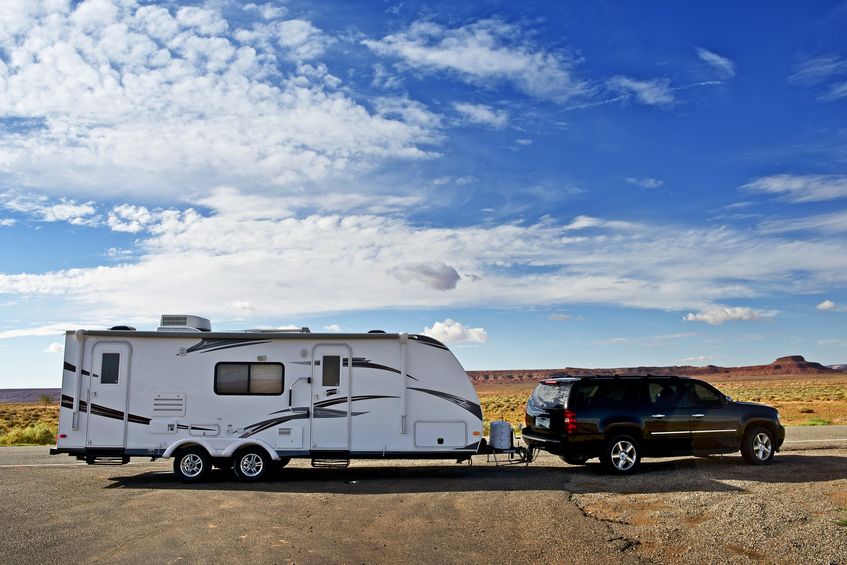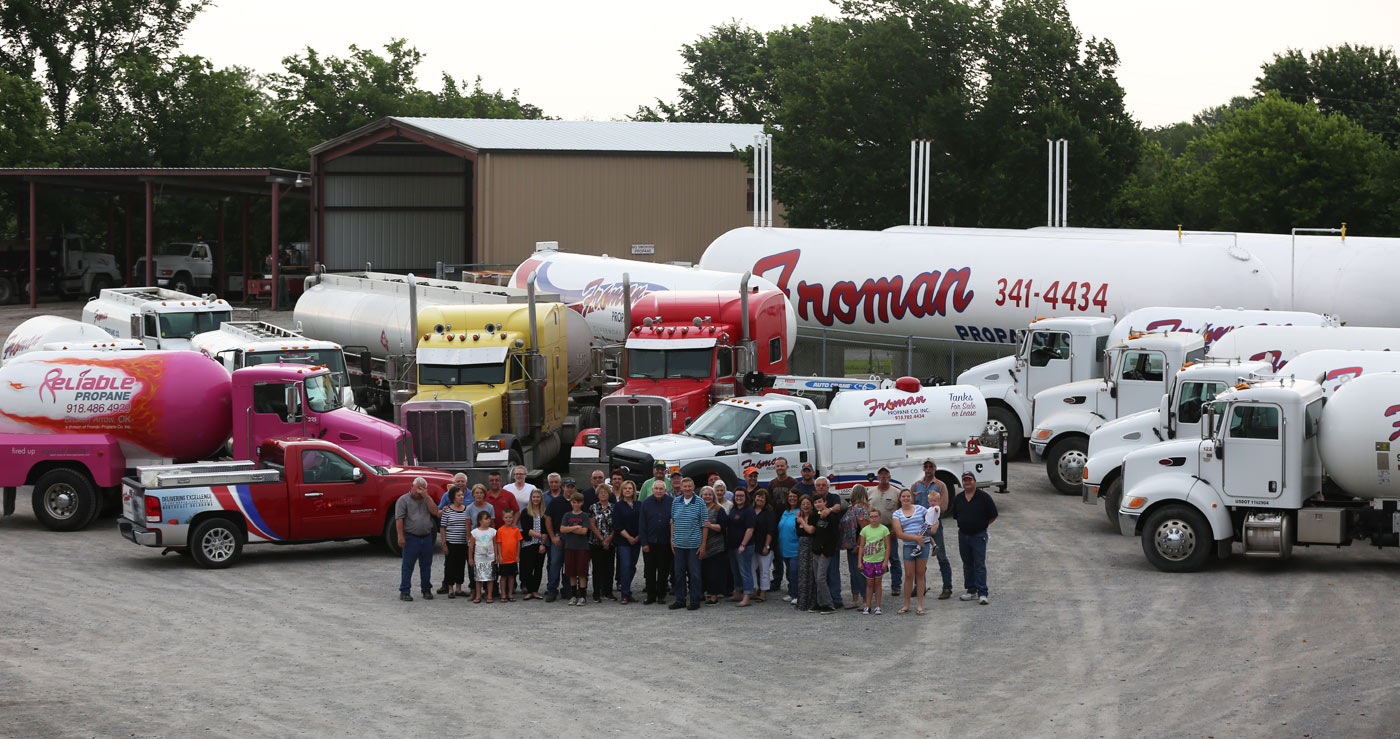Also known as “LP” for liquid petroleum, or “LPG” for liquid petroleum gas, the uses for propane in an RV are many; this multi-purpose gas can enable the intrepid RVer to venture outside the confines of a full hookup RV park. If you want to “dry camp” or “boondock”, an RV equipped with a propane stove and refrigerator is a must. If you have a propane generator, that’s even better.
Every RV has a different combination of various power sources; these can include shore power, battery power, solar panels, a generator, and of course, propane. Propane is one of the most versatile power sources for an RV. However, if you are in the market for a relatively new motorhome, trailer or 5th Wheel, watch out for “residential appliances”. These include residential refrigerators and glass top all-electric stoves; if your goal is to simply hop from one full hookup campsite to another, these will be fine. But if you would like to camp off-grid, such as in National or State Parks without hookups, you need propane.
RVs, no matter what size or class, use propane in many ways.
- Propane will heat your stove and oven to cook your meals
- Propane heats hot water for washing dishes and taking showers
- Propane will power your furnace, to keep you warm
- Propane can power an electric generator
- Propane can even power your refrigerator, to keep your food fresh
A propane stove and water heater work in the same way as a natural gas stove or water heater works in your home. However, how propane can cool your refrigerator seems like a mystery.
How a Propane Refrigerator Works
A propane refrigerator relies on a sealed network of chambers and tubes which contain ammonia, water, and hydrogen gas. The chamber holding a solution of ammonia and water is heated by a small propane flame until the liquid boils. The ammonia turns to gas, which rises into another chamber, called a condenser. Here the ammonia gas it back into a liquid. The liquid ammonia then flows into the evaporator, where it is mixed with hydrogen gas. When the ammonia joins the hydrogen gas, there is a chemical reaction that absorbs heat. That reaction causes heat to be pulled from the inside of the refrigerator into the ammonia-hydrogen mix. As the heat is absorbed, the ammonia turns into a gas once again. The ammonia and hydrogen gases recombine with the water and the process starts all over again. If you don’t understand, that, don’t worry. Your RV propane refrigerator will continue to work.
Is Propane Safe?
The recent drive towards “residential appliances” in the RV market seems to be driven, in part, by the belief that propane is dangerous. This erroneous belief seems to be especially rampant among younger RV buyers, who are only familiar with a modern, “all-electric” home.
However, RV manufacturers build in safety features to safeguard against a propane disaster and Rvers need to exercise their common sense when it comes to propane. If you suspect you have a leak, address the problem immediately.
Many people don’t know this, but your propane alarm is only good for 5 years. If your propane alarm starts to chirp, first make sure you don’t have a leak. If there’s no leak, and your alarm is 5 years or older, it’s time to change it.
For the few dramatic pictures on social media of an RV that burned down due to a propane leak, there are countless thousands still on the road without any problem. It is advisable to turn off all of your propane appliances, such as the refrigerator and water heater, while on the road. If you need to stop and get gas, the small flame from either of those appliances could cause a big problem. Also, don’t worry that your food will spoil; a tightly closed refrigerator will keep everything cool for at least 4-5 hours. Likewise, if you have a 3-way fridge, you can always put it on DC power. Just remember “Safety First!” and you should be just fine.
Is Propane Easy to Find on the Road?
Yes and no. Nearly every small town with a gas station, grocery store or even a dollar store, sells the 5-gallon propane exchange tanks. However, if you are driving a motorhome with an onboard tank, refilling that can be tricky sometimes. Not every small town has a propane business where you can refill a motorhome. Likewise, they may have one, but it’s too tight to maneuver your big rig around.
If you have an onboard propane tank, it’s smart to do a little research; map out locations along the road where you can get it refilled. Many RV parks can fill your motorhome, as well as a few truck stops. U-Haul stores are another option.
Installing an “extended stay kit” on your motorhome is a good option; this allows you to run your propane appliances off of a 5-gallon tank.
if you are staying at an RV park for a few weeks, an extended-stay-kit will allow you to leave your motorhome hooked up and parked. You won’t need to move, in order to refill the onboard tank. You can simply trade the 5-gallon propane tank in at the local grocery, hardware or dollar store.
Propane Means RV Freedom
Many people are attracted to the RV lifestyle, because they want to get away from the city, and spend time out in nature. They crave the freedom of the wide-open spaces and the great outdoors. They don’t like the idea of “camping” in an RV park, 5-feet away from their neighbors. If that describes you, shy away from “residential appliances” and get an RV fully equipped with propane.
A propane RV can allow you to live comfortably off-grid for days, or even weeks at a time. Add solar panels, or even a propane generator, and you may never go back to civilization!
Froman Propane is your #1 propane supplier for Commercial, Residential & Agricultural Propane serving Northeast Oklahoma in Rogers, Tulsa, Miami, Wagoner, Washington Counties and the Grand Lake Area. Froman Propane can fuel all your needs.

